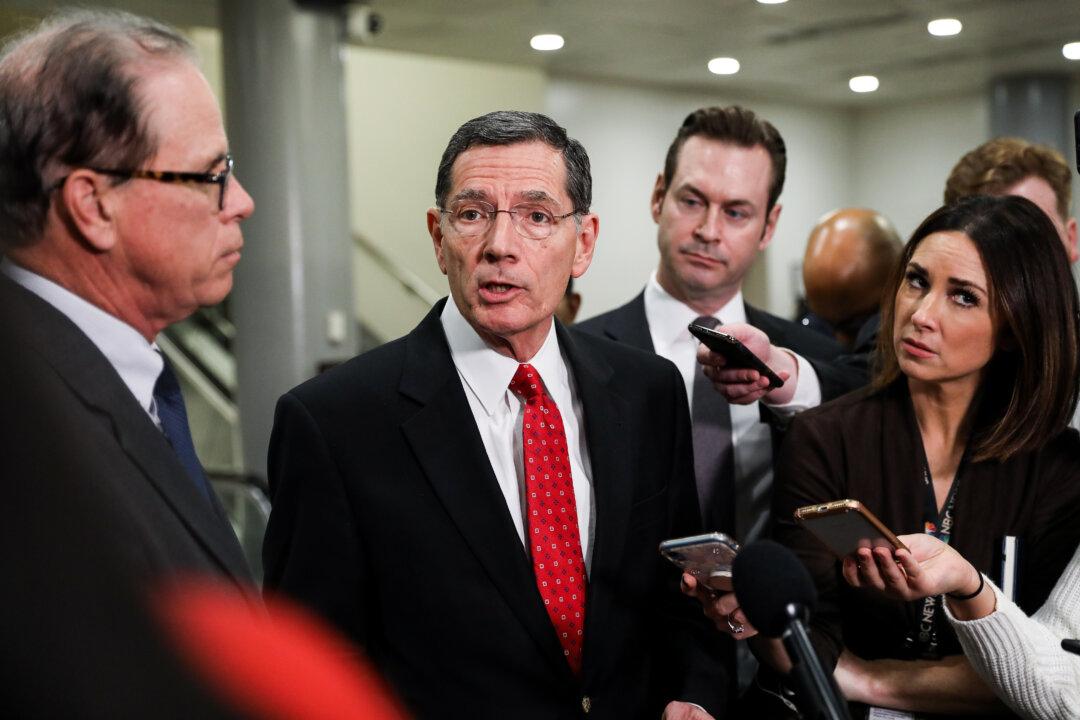The third-ranking member in the Senate Republican leadership said last week that his party wants to make sure President Joe Biden is a “one-half-term president” by reclaiming majorities in the U.S. House of Representatives and Senate in 2022.
Senate Republican Conference Chair John Barrasso (R-Wyo.) made the statement at an event hosted by the conservative Ripon Society, a public policy organization that promotes secure borders, low taxes, and small government.





